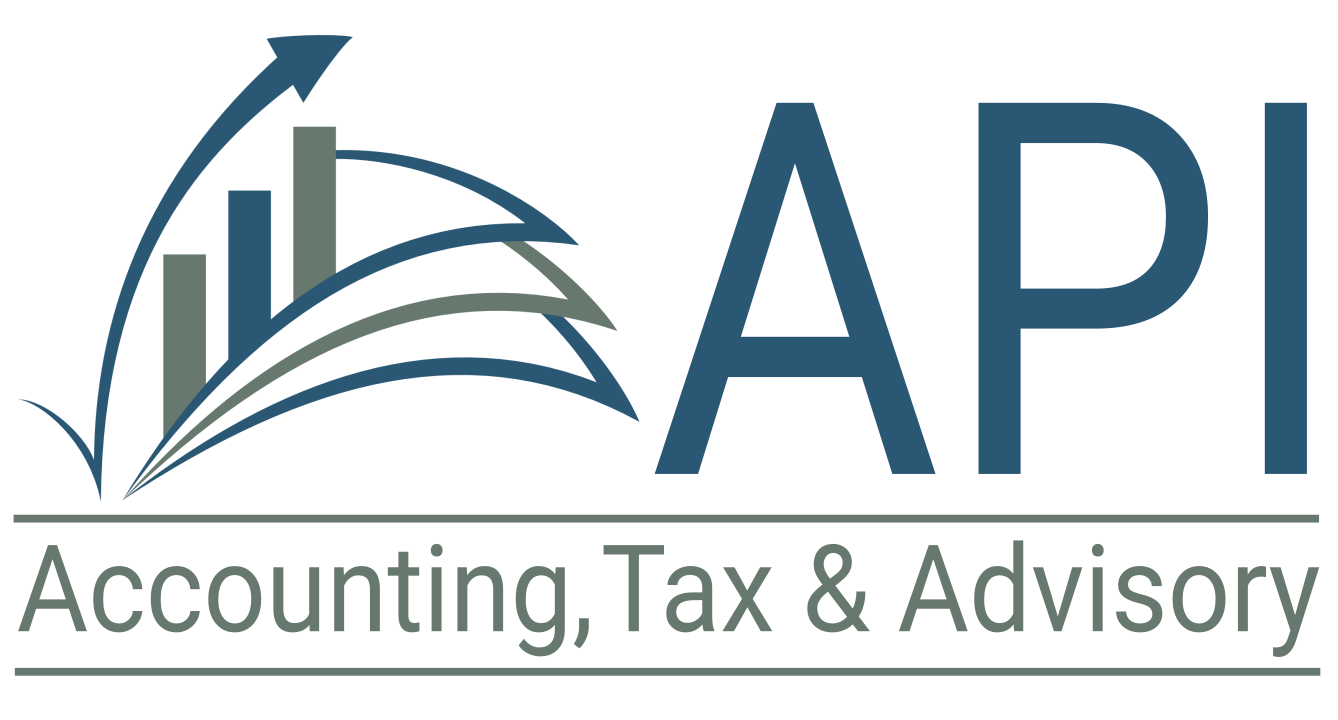Tax Prep Checklist
The items required for tax preparation are different for everyone. It is your responsibility to submit to us anything that might be pertinent. Below is a list you can use in conjunction with your Tax Organizer to gather your tax documents. For a printable list, click here.
Here is a complete, generic Tax Organizer to help you determine which items might be reportable on your tax return: 2024 API Tax Organizer. If you are an existing client, we email personalized organizers showing prior year numbers around the start of the New Year (if you do not have one, please contact us at notifications@apiaccounting.com). You do not have to (nor should you) print out the whole tax organizer, only the pages or sections that apply to you. PLEASE SUBMIT ONLY THE PAGES TO US THAT HAVE RELEVANT TAX INFORMATION (please do NOT submit blank pages).
Basic Info
Social Security or Tax ID Number and Dates of Birth for everyone included on your tax return. Don’t forget your spouse and dependents.
Identity Protection PIN, if one has been issued to you, your spouse, or your dependent by the IRS
Form 8332 showing that the child’s custodial parent is releasing their right to claim a child to you, the noncustodial parent
Personal Income
Proof of Income: Forms W-2 (employed), 1099-G (unemployed), and for those self-employed - Forms 1099, Schedules K-1, income records to verify amounts not reported on 1099-MISC or new 1099-NEC. Also, for self-employed tax payers, please include:
Records of all expenses — check registers or credit card statements, and receipts
Business-use asset information for depreciation— cost, date placed in service, etc.
Home office information — utilities, repairs, maintenance, etc.
Dates and amounts of estimated tax payments made (Forms 1040-ES & 540-ES)
Rental Income:
Records of income and expenses (here is a generic template you can use to capture this information)
Rental asset information for depreciation— cost, date placed in service, etc.
Retirement Income:
Pension/IRA/Annuity income (1099-R)
Traditional IRA basis (i.e., amounts you contributed to the IRA that were already taxed)
Social security/RRB income (SSA-1099, RRB-1099)
Savings & Investments or Dividends:
Interest, dividend income (1099-INT, 1099-OID, 1099-DIV)
Income from sales of stock or other property (1099-B, 1099-S)
Dates of acquisition and records of your cost or other basis in property you sold (if basis is not reported on 1099-B)
Health Savings Account (HSA) and long-term care reimbursements (1099-SA or 1099-LTC)
Expenses related to your investments
Transactions involving cryptocurrency (Virtual currency)
Other Income & Losses:
Gambling income (W-2G or records showing income, as well as expense records)
Jury duty records
Hobby income and expenses
Prizes and awards
Trust income
Royalty Income 1099–MISC
Any other 1099s received
Record of alimony paid/received with ex-spouse’s name and SSN
State tax refund
Personal Deductions
Home Ownership:
Forms 1098 or other mortgage interest statements
Real estate and personal property tax records (only a portion of your DMV registration is deductible, not the full amount)
Receipts for energy-saving home improvements (e.g., solar panels, solar water heater)
All other 1098 series forms
If you bought or sold a home, the Final Settlement Statement from the Title Company (usually the first couple pages of your closing paperwork)
Charitable Donations:
Cash amounts donated to houses of worship, schools, other charitable organizations
Records of non-cash charitable donations
Amounts of miles driven for charitable or medical purposes
Medical Expenses:
Amounts paid for healthcare, insurance, prescriptions, medical supplies, and to doctors, dentists, and hospitals (currently can deduct 7.5% of your AGI)
Health Insurance:
Form 1095-A if you enrolled in an insurance plan through the Marketplace (Exchange)
Childcare Expenses:
Fees paid to a licensed day care center or family day care for care of an infant or preschooler
Amounts paid to a baby-sitter or provider care of your child under age 13 while you work
Expenses paid through a dependent care flexible spending account at work
Educational Expenses:
Forms 1098-T from educational institutions
Receipts that itemize qualified educational expenses
Records of any scholarships or fellowships you received
Form 1098-E if you paid student loan interest
K-12 Educator Expenses:
Receipts for classroom expenses (for educators in grades K-12)
State & Local Taxes:
Amount of state and local income or sales tax paid (other than wage withholding)
Invoice showing amount of vehicle sales tax paid and/or personal property tax on vehicles
Retirement & Other Savings:
Form 5498-SA showing HSA contributions
Form 5498 showing IRA contributions
All other 5498 series forms (5498-QA, 5498-ESA)
Federally Declared Disaster:
City/county you lived/worked/had property in
Records to support property losses (appraisal, clean-up costs, etc.)
Records of rebuilding/repair costs
Insurance reimbursements/claims to be paid
FEMA assistance information
Check the FEMA website to see if your county has been declared a federal disaster area
Business Entities
Year-End Profit & Loss Summary Statement (if you do not have accounting software to generate this report, click here for a generic template)
Year-End Balance Sheet (click here for a balance sheet generic template)
General Ledger Detail report, specifically showing any fixed assets acquired during the year, or just a list of newly acquired fixed assets
Dates and amounts of estimated tax payments made (Form 100-ES)
Dates and amounts of Pass-Through Entity Elective Tax Payments made (Form 3893)
Balances of all bank, loan, and/or credit card accounts as of 12/31 (or applicable FYE)
